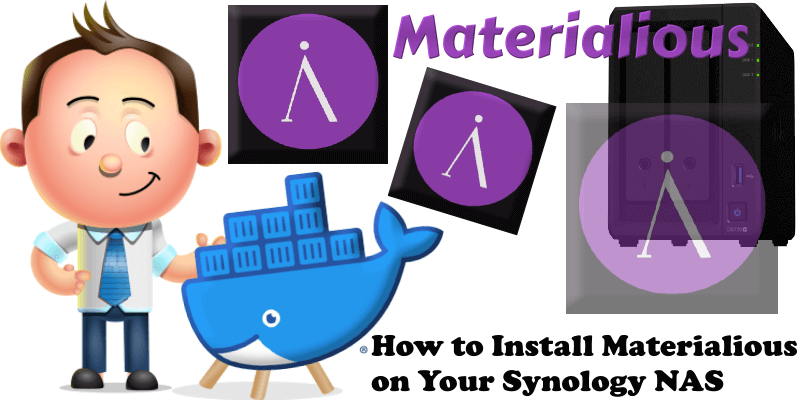
Materialious is a modern material UI design for Invidious. Materialious has multiple built-in features, including built-in Sponsorblock, built-in Return YouTube dislikes, video progress tracking & resuming. There are no ADS, no tracking. With Materialious you can choose between Light/Dark themes and custom color themes. Materialious integrates with Invidious subscriptions, watch history & more. It provides live stream support, Dash support, Chapters, Audio-only mode, Playlists and PWA support. In this step by step guide I will show you how to install Materialious on your Synology NAS using Docker and Portainer.
STEP 1
Please Support My work by Making a Donation.
STEP 2
Install Invidious. If you already have Invidious installed on your Synology NAS, skip this STEP.
STEP 3
Go to Control Panel / Network / Connectivity tab/ Check Enable HTTP/2 then click Apply. Follow the instructions in the image below.
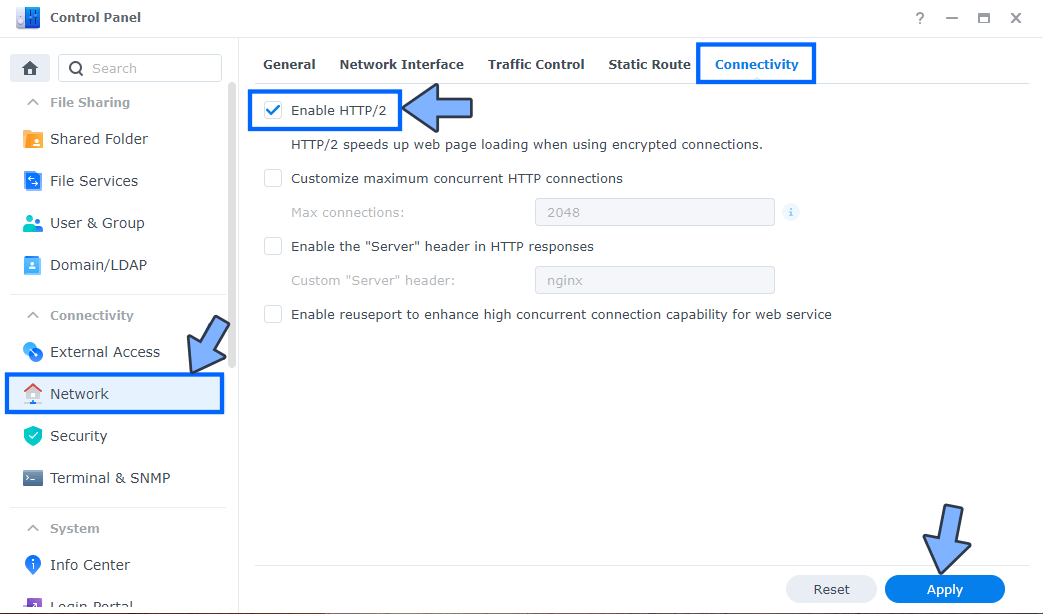
STEP 4
Go to Control Panel / Security / Advanced tab/ Check Enable HTTP Compression then click Apply. Follow the instructions in the image below.
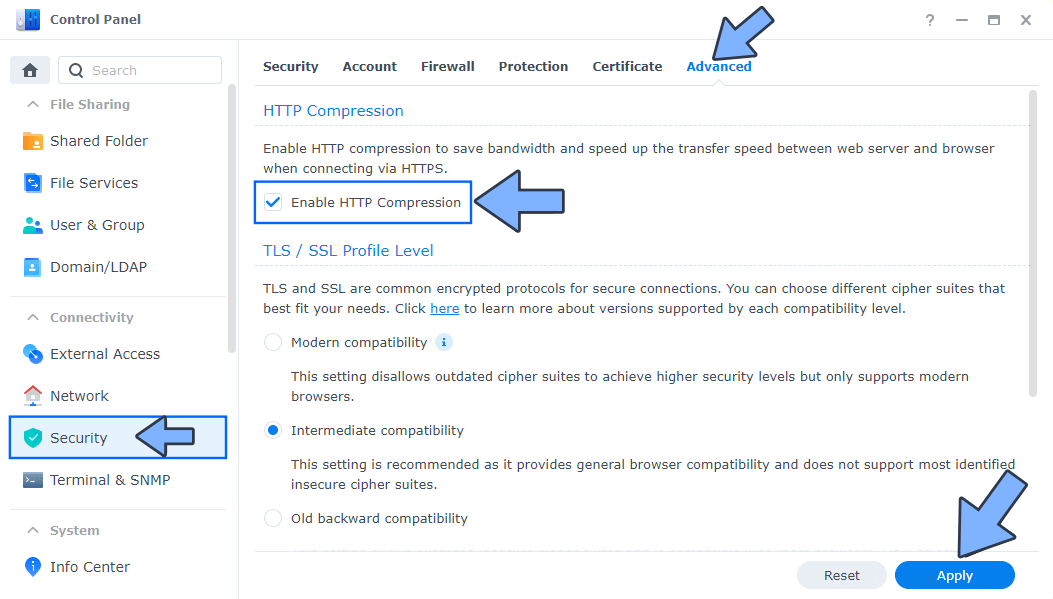
STEP 5
Go to Control Panel / Login Portal / Advanced Tab / click Reverse Proxy. Follow the instructions in the image below.
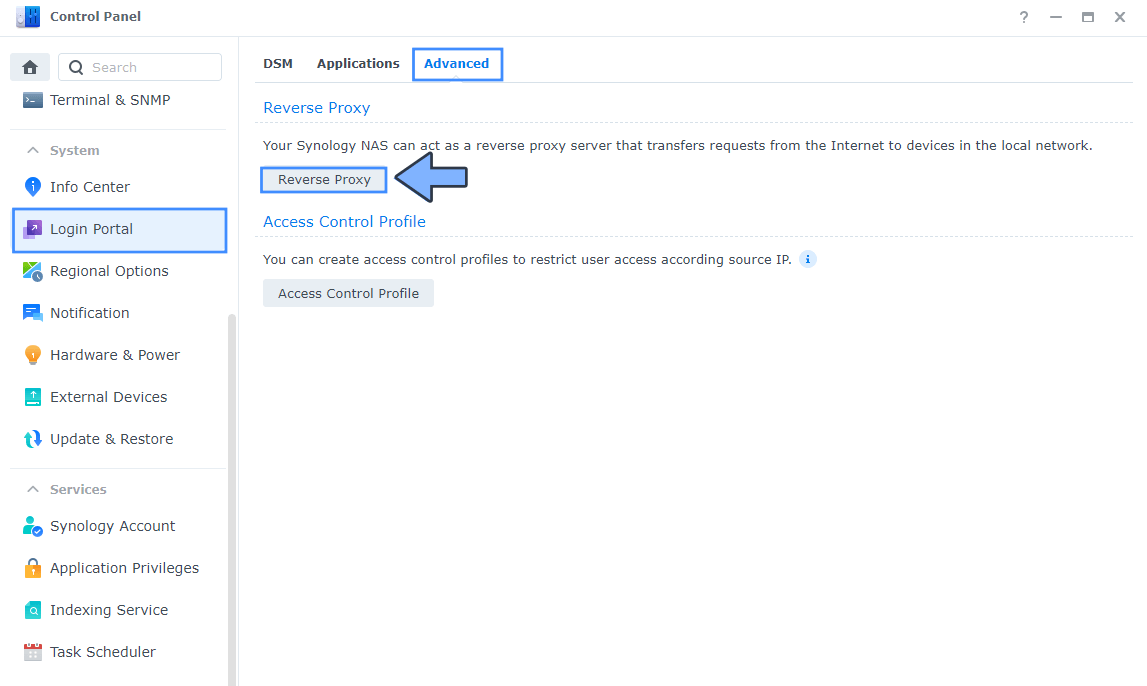
STEP 6
Now click the “Create” button. Follow the instructions in the image below.
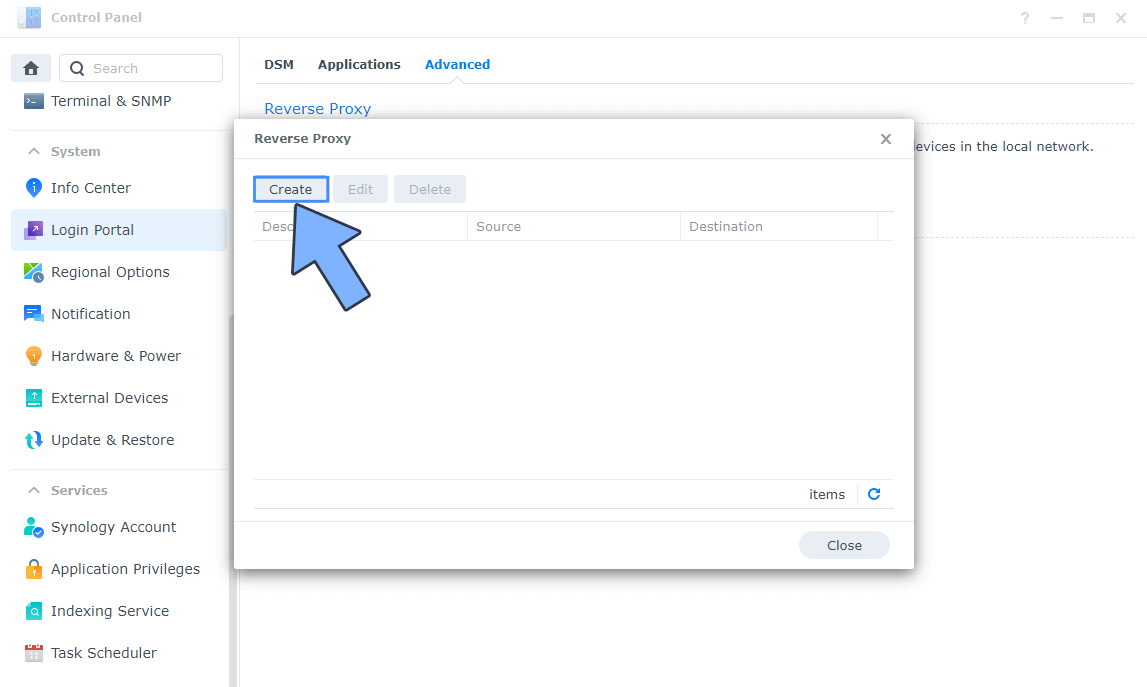
STEP 7
After you click the Create button, the window below will open. Follow the instructions in the image below.
On the General area, set the Reverse Proxy Name description: type in Invidious UI. After that, add the following instructions:
Source:
Protocol: HTTPS
Hostname: invidiousui.yourname.synology.me
Port: 443
Check Enable HSTS
Destination:
Protocol: HTTP
Hostname: localhost
Port: 3241
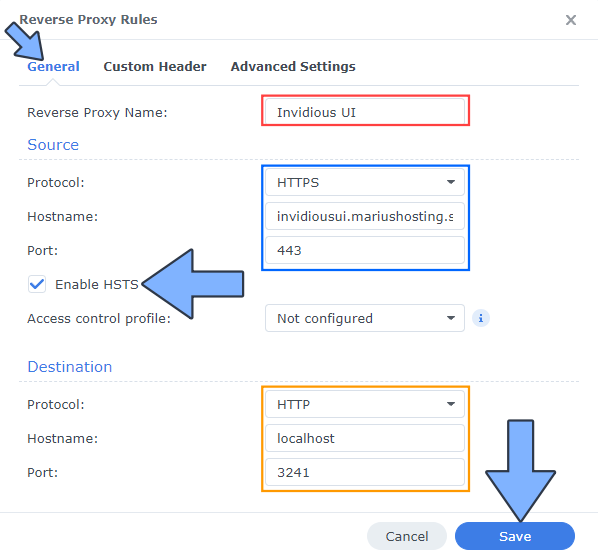
STEP 8
On the Reverse Proxy Rules, click the Custom Header tab. Click Create and then, from the drop-down menu, click WebSocket. After you click on WebSocket, two Header Names and two Values will be automatically added. Click Save. Follow the instructions in the image below.

STEP 9
Log into Portainer using your username and password. On the left sidebar in Portainer, click on Home then Live connect. Follow the instructions in the image below.

On the left sidebar in Portainer, click on Stacks then + Add stack. Follow the instructions in the image below.

STEP 10
In the Name field type in materialious. Follow the instructions in the image below.
services:
materialious:
image: wardpearce/materialious
container_name: Invidious-Materialious-UI
healthcheck:
test: ["CMD-SHELL", "nc -z 127.0.0.1 80 || exit 1"]
interval: 10s
timeout: 5s
retries: 3
start_period: 90s
ports:
- 3241:80
environment:
VITE_DEFAULT_INVIDIOUS_INSTANCE: https://invidious.yourname.synology.me
VITE_DEFAULT_RETURNYTDISLIKES_INSTANCE: https://www.returnyoutubedislike.com/
VITE_DEFAULT_FRONTEND_URL: https://invidiousui.yourname.synology.me
VITE_DEFAULT_SPONSERBLOCK_INSTANCE: https://sponsor.ajay.app
VITE_DEFAULT_COMPANION_INSTANCE: https://invidious.yourname.synology.me
restart: on-failure:5
Note: Before you paste the code above in the Web editor area below, change the value for VITE_DEFAULT_INVIDIOUS_INSTANCE. Type in your own synology.me DDNS that you have previously created at STEP 6 in the INVIDIOUS GUIDE with https at the beginning.
Note: Before you paste the code above in the Web editor area below, change the value for VITE_DEFAULT_FRONTEND_URL. Type in your own synology.me DDNS that you have previously created at STEP 6 In this article with https at the beginning.
Note: Before you paste the code above in the Web editor area below, change the value for VITE_DEFAULT_COMPANION_INSTANCE. Type in your own synology.me DDNS that you have previously created at STEP 6 in the INVIDIOUS GUIDE with https at the beginning.
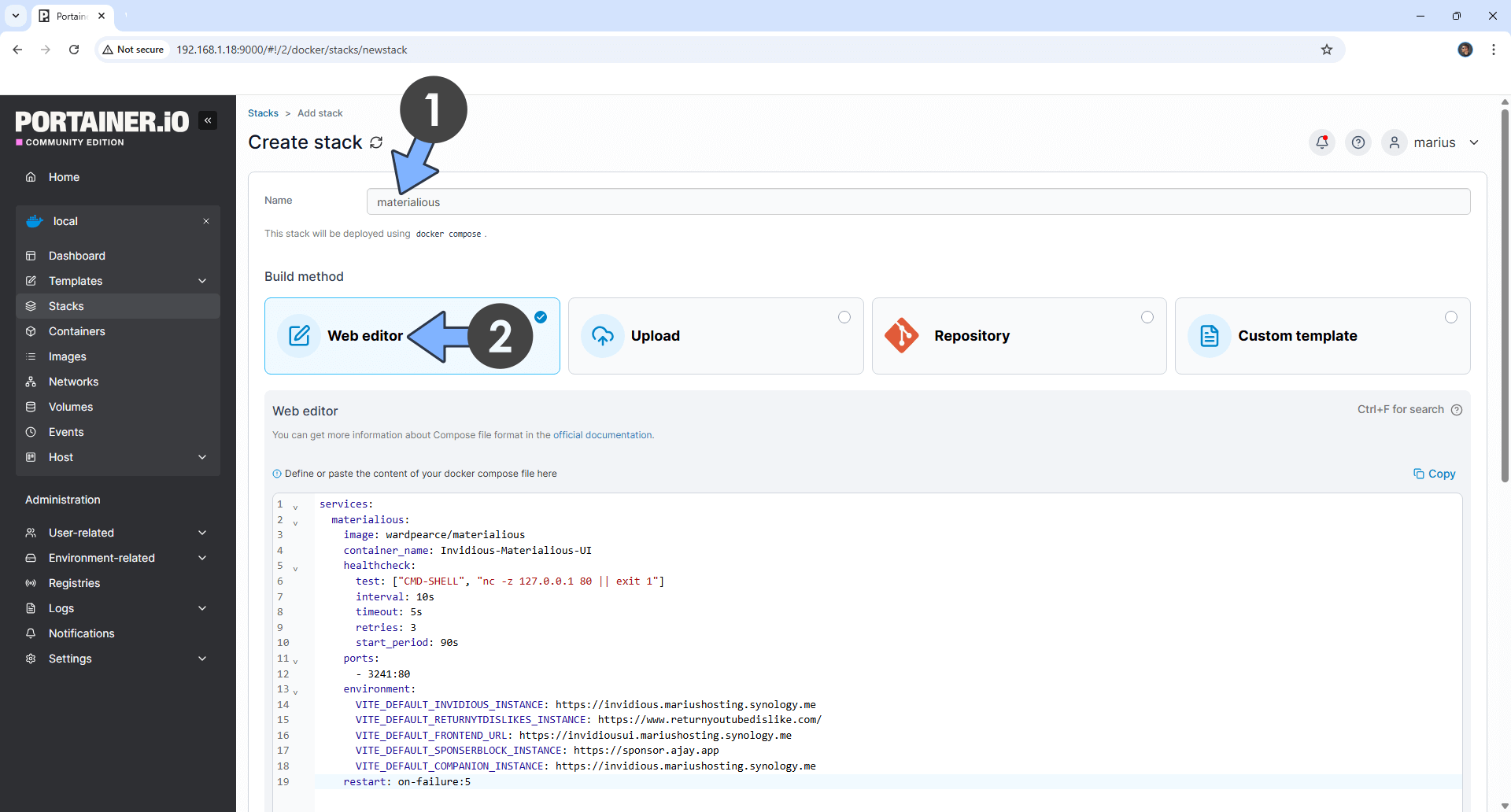
STEP 11
Scroll down on the page until you see a button named Deploy the stack. Click on it. Follow the instructions in the image below. The installation process can take up to a few minutes. It will depend on your Internet speed connection.
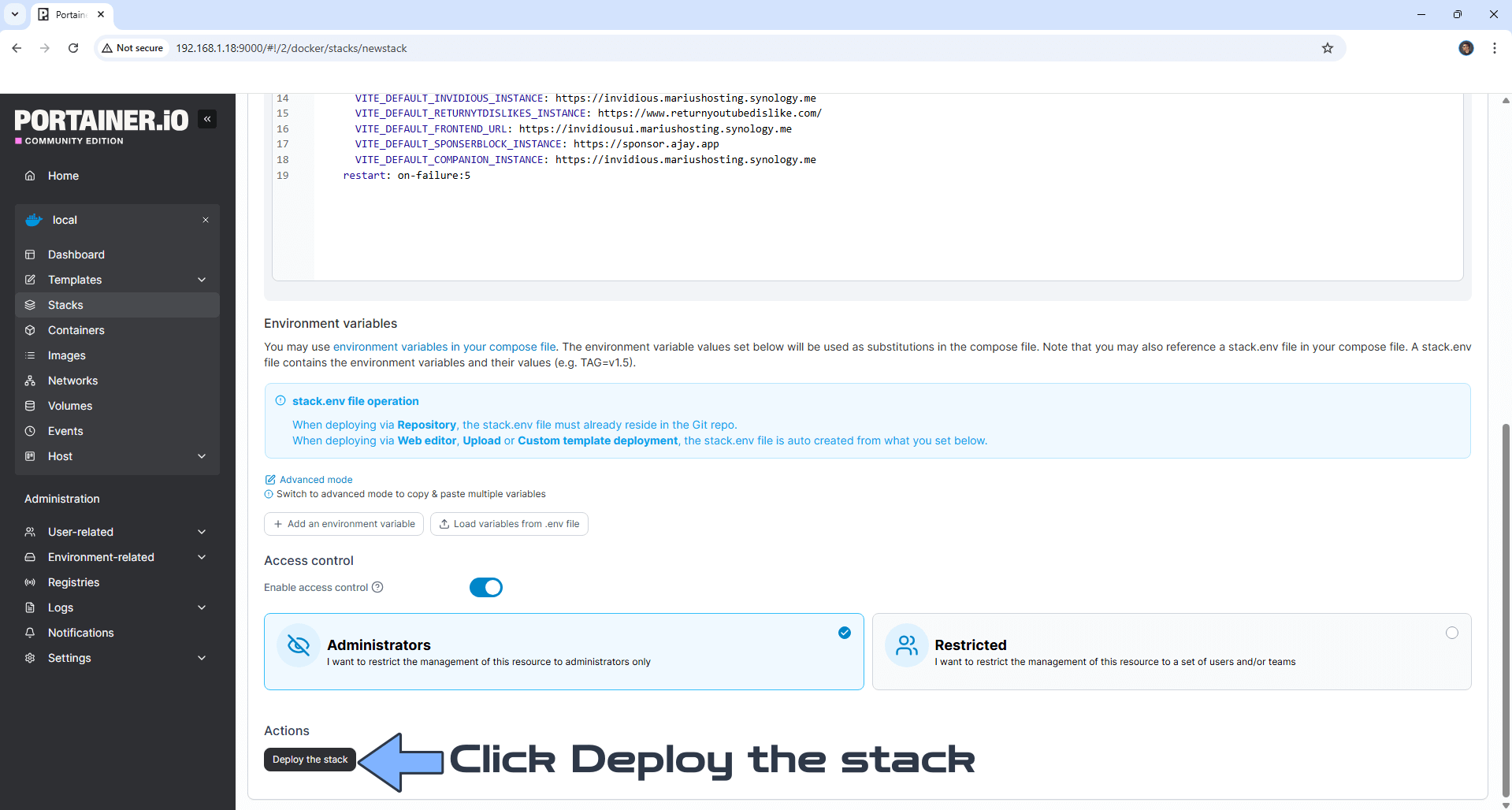
STEP 12
If everything goes right, you will see the following message at the top right of your screen: “Success Stack successfully deployed“.

STEP 13
🟢Please Support My work by Making a Donation. Almost 99,9% of the people that install something using my guides forget to support my work, or just ignore STEP 1. I’ve been very honest about this aspect of my work since the beginning: I don’t run any ADS, I don’t require subscriptions, paid or otherwise, I don’t collect IPs, emails, and I don’t have any referral links from Amazon or other merchants. I also don’t have any POP-UPs or COOKIES. I have repeatedly been told over the years how much I have contributed to the community. It’s something I love doing and have been honest about my passion since the beginning. But I also Need The Community to Support me Back to be able to continue doing this work.
STEP 14
Now open your browser and type in your HTTPS/SSL certificate like this https://invidiousui.yourname.synology.me In my case it’s https://invidiousui.mariushosting.synology.me If everything goes right, you will see the Materialious-Invidious main page. Search for something. Follow the instructions in the image below.
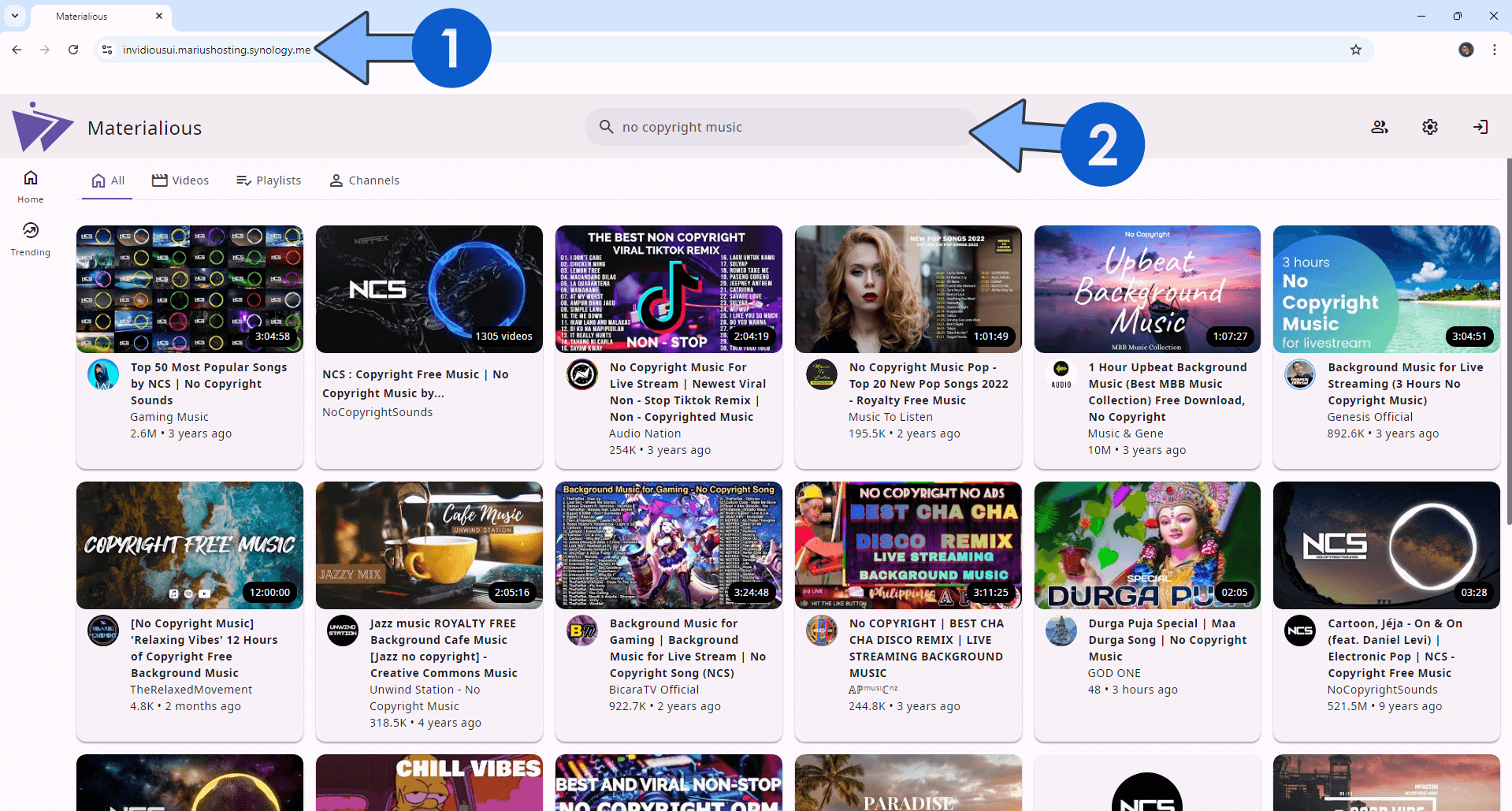
STEP 15
At the top right of the page, click the Settings icon to access the Materialious settings. Change your Interface Colors. Follow the instructions in the image below.
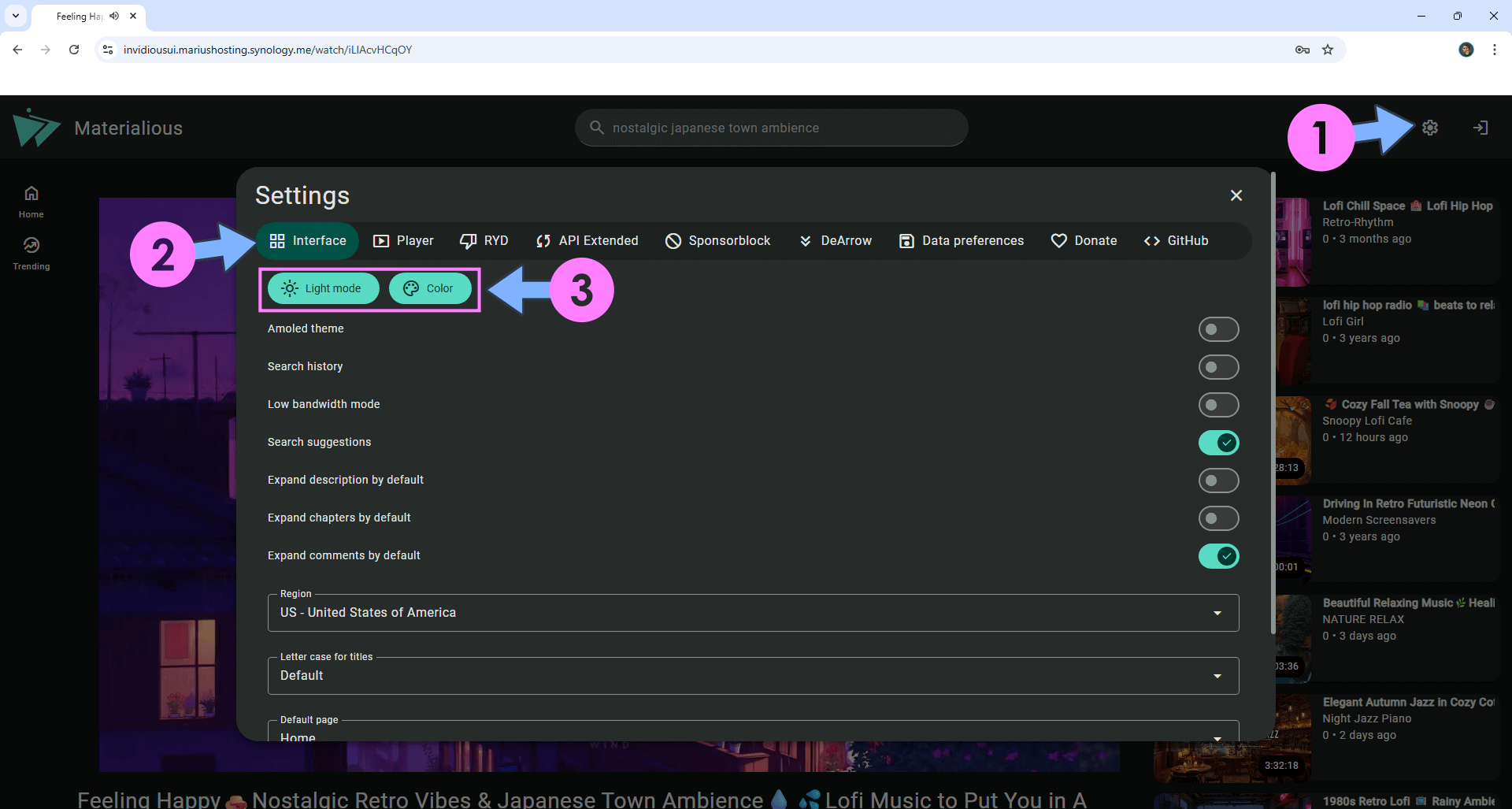
STEP 16
Your Materialious dashboard at a glance!
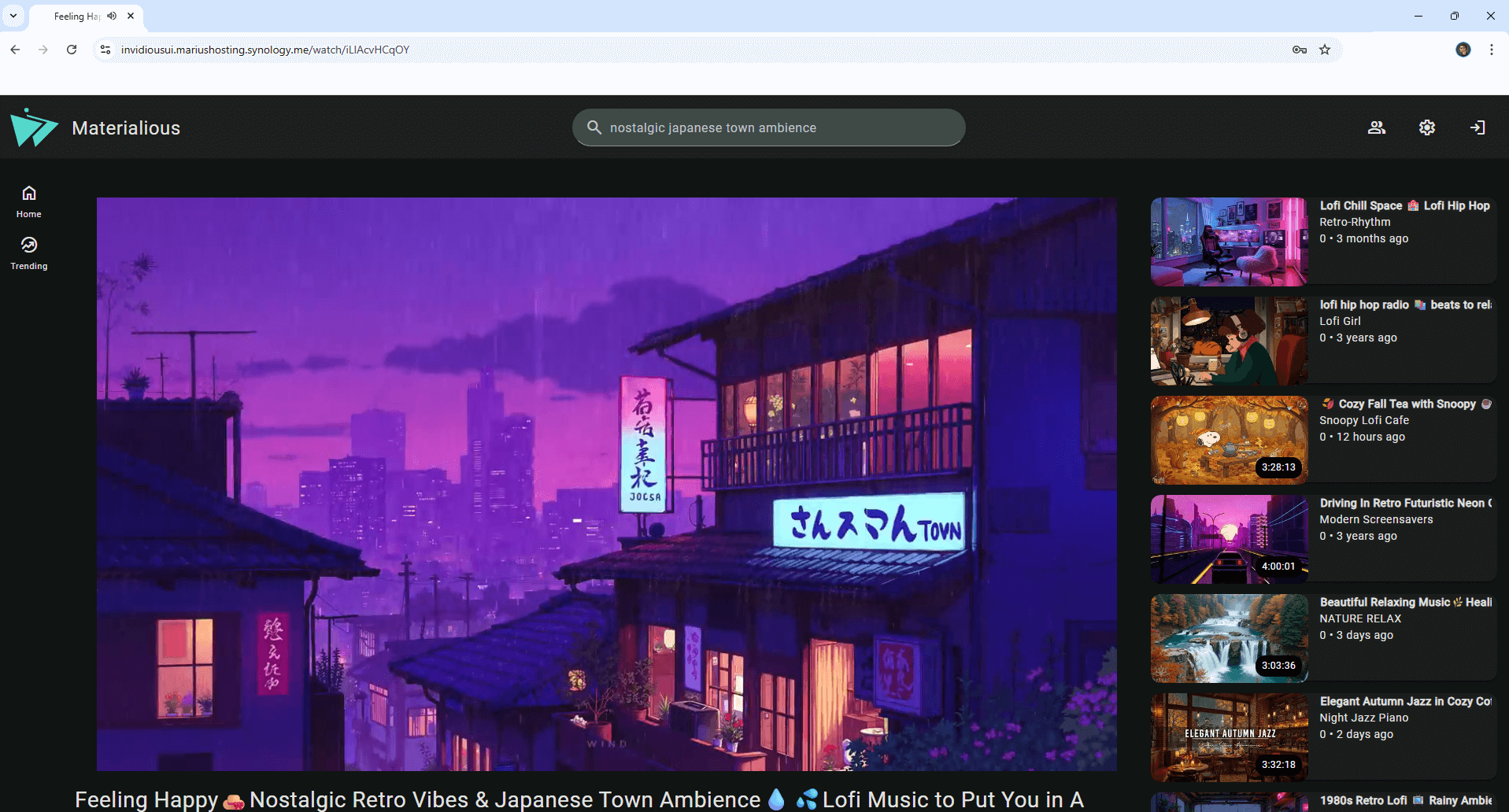
Enjoy Materialious!
If you encounter issues by using this container, make sure to check out the Common Docker issues article.
Note: Can I run Docker on my Synology NAS? See the supported models.
Note: How to Back Up Docker Containers on your Synology NAS.
Note: Find out how to update the Materialious container with the latest image.
Note: How to Free Disk Space on Your NAS if You Run Docker.
Note: How to Schedule Start & Stop For Docker Containers.
Note: How to Activate Email Notifications.
Note: How to Add Access Control Profile on Your NAS.
Note: How to Change Docker Containers Restart Policy.
Note: How to Use Docker Containers With VPN.
Note: Convert Docker Run Into Docker Compose.
Note: How to Clean Docker.
Note: How to Clean Docker Automatically.
Note: Best Practices When Using Docker and DDNS.
Note: Some Docker Containers Need WebSocket.
Note: Find out the Best NAS Models For Docker.
Note: Activate Gmail SMTP For Docker Containers.
This post was updated on Sunday / October 26th, 2025 at 1:18 AM
